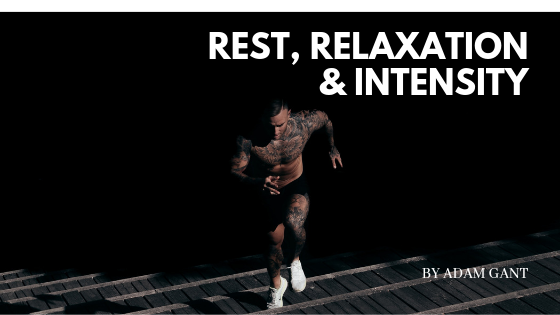When exercising, it can be easy to fall into the trap of believing that frequent, strenuous workouts are the most beneficial for muscle gain, weight loss, and overall health. Likewise, it is often believed that peak performance is achieved when an athlete’s attention is completely directed at their objective. However, these beliefs are largely misconceptions.
Rest is an essential component of effective exercise and training, and though it may seem contrary, most athletes perform best when they are physically and mentally relaxed, even in tense situations. That being said, intensity also plays a significant role in the performative ability of an individual, but all three parts are necessary for optimal performance.
The Importance of Rest
Overworking your body has negative effects than can impact your functionality and quality of life. Learning to take time to grant your body the rest it needs to recover is an important part of training. Regardless of your goals or intentions, resting is essential for proper growth and healing. During workouts, training, sports matches, and other repetitive physical activity, you essentially cause some damage to your body in order to make it stronger over time. In order to do this effectively, you must allow your body time to heal rather than simply damaging it over and over again.
Ensuring you properly stretch your muscles, get plenty of sleep, eat essential nutrients, and drink enough water are just a few ways you can ensure you give your body the rest it needs in order to grow stronger.
Relaxation
During tense situations—such as the last few seconds of a close basketball game or a difficult incline on a climb—it can be easy for athletes to get stressed themselves, but this will have a negative effect on their performance. Learning to condition yourself to relax in intense situations enables better focus and improved ability. However, teaching yourself to relax can be challenging, and forcing yourself into a relaxed state can inadvertently cause stress.
Relaxation requires both physical and mental elements. Physically, you steady your breathing and lower your heart rate, allowing your muscles to relax. One way to do this is to take slower, deeper breaths in through the nose and slowly out the the mouth. This is a similar breathing pattern to what is used in meditation and can reduce the body’s adrenal response to further calm the nerves. On the mental front, dismissing thoughts of fear and failure is essential as self-doubt can negatively influence your performance.
Once in a relaxed state physically and mentally, maintaining a certain level of intensity is also important for achieving the most success in an athletic activity.
Intensity
Losing concentration and intensity during a game or demanding activity can be extremely detrimental, so working to maintain the same level of focus for the duration while remaining relaxed is necessary. This might sound complex, but it is possible and recommended to be at ease physically and mentally without surrendering any amount of concentration.
Making that commitment to intense focus and performance is what distinguishes good athletes from great ones. Being able to relax your mind and body without jeopardizing your concentration is a hallmark of effective training.
Working out, playing sports, and getting involved in any demanding physical activity takes determination, endurance, and strength. In order to perform at your best, you must take time to rest your body, and you should strive to teach yourself how to relax appropriate and maintain intensity.

